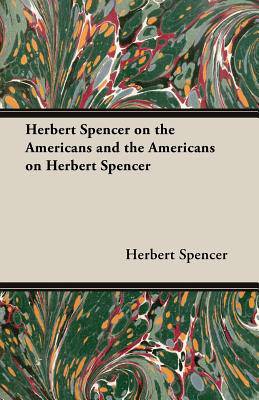
- Afhalen na 1 uur in een winkel met voorraad
- Gratis thuislevering in België vanaf € 30
- Ruim aanbod met 7 miljoen producten
- Afhalen na 1 uur in een winkel met voorraad
- Gratis thuislevering in België vanaf € 30
- Ruim aanbod met 7 miljoen producten
Zoeken
Herbert Spencer on the Americans and the Americans on Herbert Spencer
Herbert Spencer
Paperback | Engels
€ 28,45
+ 56 punten
Omschrijving
This early work by Herbert Spencer was originally published in 1883 and we are now republishing it with a brand new introductory biography. 'Herbert Spencer on the Americans and the Americans on Herbert Spencer' is a collection of fascinating speeches and letters that illustrate Spencer's professional relationships and public perception. Herbert Spencer was born on 27th April 1820, in Derby, England. In 1851 he published 'Social Statics' to great acclaim and his quietly influential 'Principles of Psychology' in 1955. These were followed by numerous works of sociology, psychology, and philosophy, which led him to become a prominent intellectual of his day. He also wrote 'The Developmental Hypothesis' (1852) which described the theory of evolution seven years before Charles Darwin's 'Origin of Species'. He even popularised the term "Evolution" and coined the phrase "Survival of the fittest", but his works did not contain the comprehensive theoretical system that Darwin's did, which is why his theory was not taken seriously at the time. Spencer's most famous idea was that of "Social Darwinism." He saw the process of organic evolution as being analogous to that of society, an idea influenced many intellectuals of the day.
Specificaties
Betrokkenen
- Auteur(s):
- Uitgeverij:
Inhoud
- Aantal bladzijden:
- 114
- Taal:
- Engels
Eigenschappen
- Productcode (EAN):
- 9781473309142
- Verschijningsdatum:
- 10/07/2013
- Uitvoering:
- Paperback
- Formaat:
- Trade paperback (VS)
- Afmetingen:
- 140 mm x 216 mm
- Gewicht:
- 154 g

Alleen bij Standaard Boekhandel
+ 56 punten op je klantenkaart van Standaard Boekhandel
Beoordelingen
We publiceren alleen reviews die voldoen aan de voorwaarden voor reviews. Bekijk onze voorwaarden voor reviews.








